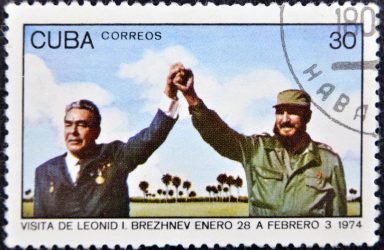Why Does Big Tech Stay Headquartered In The US?
Big Tech centres its corporate power in the US to influence the American government into advancing its interests domestically and internationally.
Analysing Amnesty International’s ‘Israel’s Apartheid Against Palestinians’ Report
The report spotlights practices that warrant scrutiny, yet what is equally worrisome is that it seems to be part of a movement to delegitimize Israel as a state.
What Strategy would you Pursue when Dealing with Iran in 2007? Why?
Since the turn of the century, Iran has emerged as an increasingly powerful actor in the Middle East. However, Tehran’s Islamist regime is seen to pose a number of political and security challenges to both neighbouring and ‘western’ states. The question of how to respond to the assertive and confrontational policies of the hard-line president, Mahmoud Ahmadinejad, has therefore proved to be a hot topic for the media, academics and politicians alike. This essay will consider what strategy western states should pursue with regards to Iran’s nuclear ambitions, an issue of central importance for regional and global stability. Whilst this is merely one of many Iranian policies that needs ‘dealing with’ from a western perspective, it is widely considered to be the most significant threat and, thus, is a useful case study through which to consider relations between the West and Iran more generally.
Around the World in 80 Stereotypes: Images of the MENA Region in Hollywood
This study of MENA representation in Hollywood (2001-2008) finds foreign-accented English and multilingualism were most often associated with negative motivations.
Understanding the ‘Us Vs Them’ Division Through the Notion of Responsibility
State actors strategically construct the notion of responsibility in controversial international areas aiming to legitimize their international stances and behaviors with/against others.
The Mediator’s Trap: Dayton’s Cultural Negligence for a Culture of Peace
Incorporating socio-cultural dimensions is essential to stimulate tacit reconciliation in deep-rooted identity conflicts such as in Bosnia.
How Important are Shared Culture, Language and Values to the ‘special relationship’ between Britain and the United States?
In 1946 Sir Winston Churchill delivered his famous ‘Iron Curtain’ speech in Fulton, Missouri, speculating on the future of the world order. Within it, he described “the fraternal association of the English-speaking people” that meant “a special relationship between the British Commonwealth and Empire and the United States of America”[1]. Since that day politicians, academics and commentators on both sides of the Atlantic frequently describe the warm diplomatic, cultural and historical relations between the United States and the United Kingdom as being a ‘special relationship’.
Student Led Advocacy and the ‘Scholars in Prison’ Project
Experimental Learning, when combined with didactic learning, can challenge and (re)form both the instructor and student understanding of what counts as knowledge and expertise.
Conceptualising Europe’s Market Power: EU Geostrategic Goals Through Economic Means
Due to its economic weight, the assumption of the EU’s predominant economic power is logical. This applies even in security issues such as the Ukraine conflict.
Cuban Cold War Internationalism and the Nonaligned Movement
Although Cuba provided aid to over 20 countries in Africa, their 16 year mission in Angola stood out as proof that in spite of the US, they could still exert their own influence around the world.







